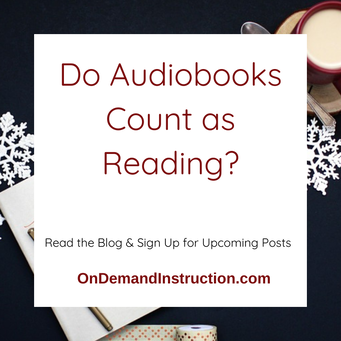
Although in my perfect world, everyone reads beautiful hardbound books made of high-quality paper with gorgeous fonts that suck you into the stories, that isn’t how the world works. Audiobooks are the fastest growing market in the publishing world right now. But does listening to an audiobook count as reading?
In reality, we read what we have access to. Many of us don’t have enough time to read paper books the way we once did. I remember growing up we would spend the first half of Saturday sitting around reading. But, in my current life, I don’t live that way. I work 50% more hours per week than my parents did, and I have a full schedule on top of my job. I am engaged in a number of activities: writers' group, working out, writing three different books, and household tasks. I also have my family to think of. My kids are busy (intentionally so). And each of these activities means time away from reading paper books.
Audiobooks have changed enormously over the last 30 years. My husband once belonged to an audiobook lending bookstore. For $50 a month, he would check out as many audiobooks as he could listen to, which was a lot, since he would listen at work for 10 hours a day and in the car. Considering that the books he listens to are 700-page fantasy tomes, this was an exciting option. It connected him to his favorite authors (Terry Goodkind and Robert Jordan) and allowed him to keep reading while he worked.
Today, audiobooks are available everywhere and millions of people have caught on to the trend. Many people don’t want to listen to the news or the radio, but an audiobook can be a source of pleasure reading or informational reading depending on the title. Subscribe to the blog and get tips and tricks that will support your writing.
Success! Now check your email to confirm your subscription.
Granted, I have heard concerns about listening to audiobooks in lieu of reading paper books. Fellow educators have suggested that listening to an audiobook does not engage the reader in the same way that a paper book does. They have also said that the learning gains from audiobooks are lower than from reading a paper book. I can understand these concerns, and I take them into consideration when I recommend an audiobook to a student. But if the decision is between a reader struggling through a paper book or abandoning the paper book altogether, I support the audiobook as an option. To me, an audiobook could be used as a gateway to independent reading for a reluctant reader, which in the long run, would support literacy skills and lifelong learning through reading.
Fellow writers have also expressed concerns that the audiobook misrepresents the author’s original intentions behind the text. You see, when a playwright composes a piece for the theater, they intend the piece to be performed by professional actors for a live audience. But when an author composes a piece, they intend the connection between writer and reader to occur on the page and not be interrupted by a reader’s intonations, emphasis, and vocal suggestions.
These are fair concerns. Having listened to at least a hundred audiobooks, I agreed that some actors add their own spin to the story by the way they use their inflections, pronunciations, and tone to deliver the tale in a way that may be different than the author intended. As a writer, I can understand not wanting an uncontrollable in-between to enter the writer-reader relationship. But I think that I would prefer to have my story valued enough in the mainstream market to be recorded as an audiobook. I also think that some of the best audiobooks I have heard are ones read by the author. For example, I have listened to two audiobook versions of Fahrenheit 451. The version read by Ray Bradbury is spectacular, an experience to be appreciated over and over again (I’ve listened to it at least three times already). The author knows how to control and deliver the text, and I would love to hear more books read by their authors.
So, does it count as reading to listen to an audiobook instead of reading a paper book?
At this point, I would argue that it does. First, accessibility to audiobooks is higher than for paper books. People can listen to an audiobook while commuting, exercising, or doing mundane tasks. Reading a paper book is more of a challenge while doing a second activity. I know, I’ve tried. I used to try bringing my book to the gym and the only machine where it worked was the recumbent bicycle. With my audiobook plugged into my ears, I am free to roam the gym and can hit the machines and free weights that I need. The same is true for driving, walking, running errands, and cleaning the house. The accessibility issue has greatly improved recently since the advent of smartphones. Now, people are downloading audiobooks using apps like LibriVox and Kobo where people can buy audiobooks and listen to them anytime their phone is nearby. Plus, readers can connect their phone to the car’s stereo system and never miss a line of the story. Technology has upgraded audiobooks for readers who used to have to carry around CD players and change out the CD every hour. Now, audiobooks have full streaming accessibility.
Too, audiobooks increase the number of titles on our mental bookshelves. The statistics around reading are a bit depressing. The young and the elderly tend to be the lowest readers, with few reading a book a year. If we got audiobooks into the hands of more people, we could potentially increase their general knowledge and engagement with humanities, the sciences, and current events. More readers means a more educated population, which means stronger communities because people have more information available for better decision making.
If the decision comes down to not reading, reading only occasionally, struggling through reading paper books, or listening to audiobooks, I say go for the audiobooks. I have met a few writers who don’t read or read only occasionally and I have recommended trying out audiobooks as an alternative to paper books. Yes, in a perfect world, we would all read beautifully crafted hardbound books, but the reality is that many of us are trying to keep up with busy schedules. The audiobook format fits for many people, writers included.
So, if you are not reading a book right now, go get one. The library has both CDs and downloadable audiobooks to check out (you can use apps to download them onto your phone). You can buy audiobooks for download, and even YouTube has audiobooks available for instant listening. Listening to audiobooks increases the number of books you complete each year, and that leads to a more knowledgeable, competent version of you. Related Blog Posts
|
About the SiteWelcome, Writers! Archives
September 2023
|
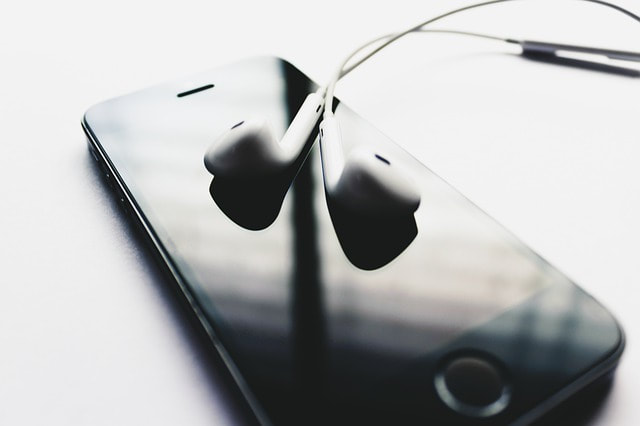
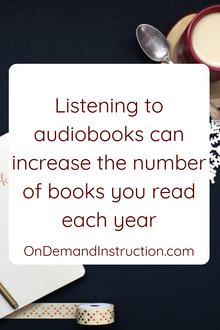

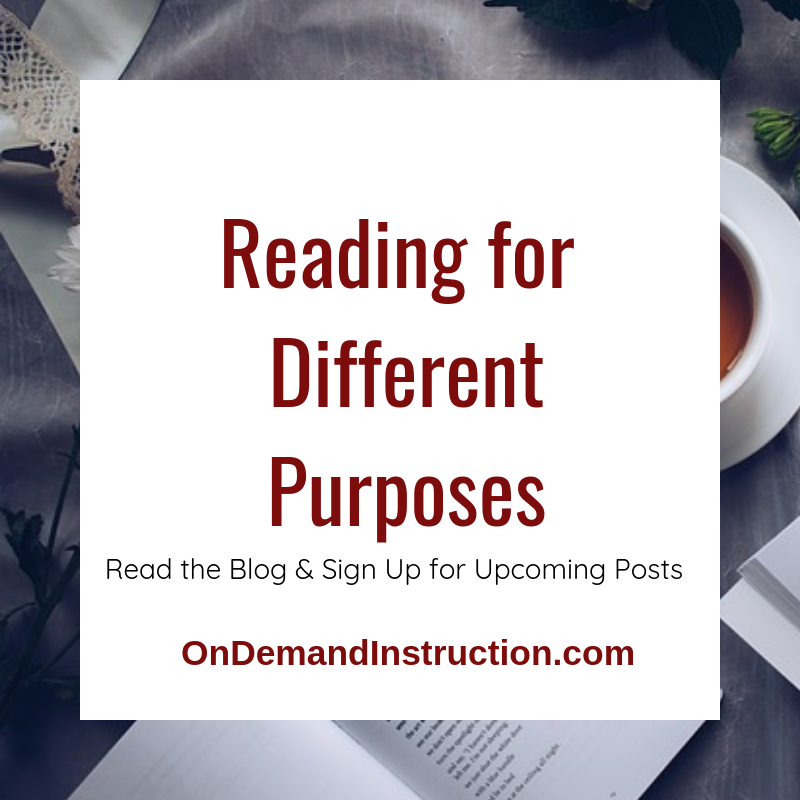
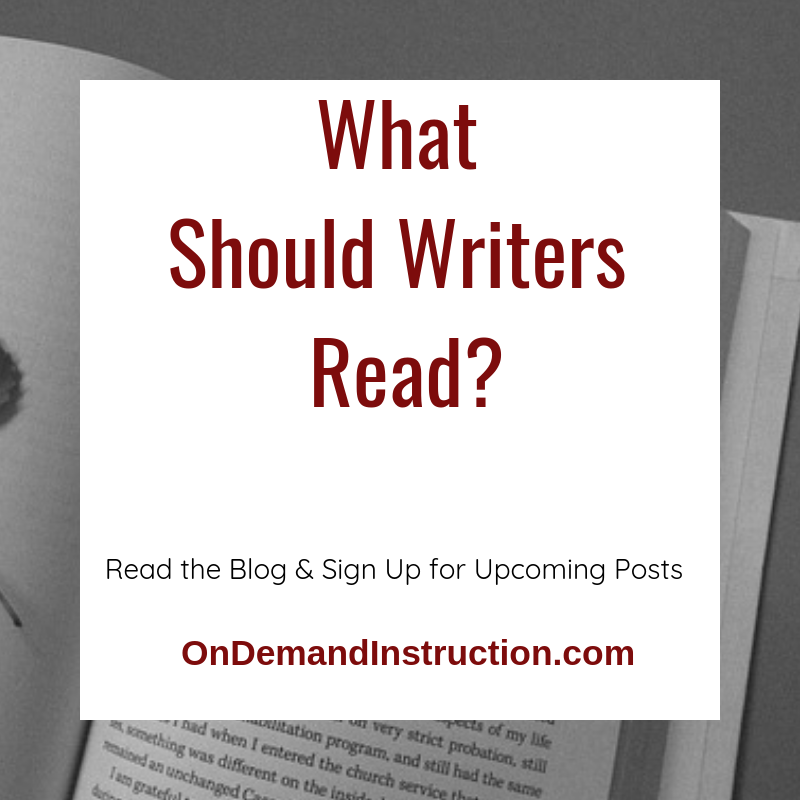
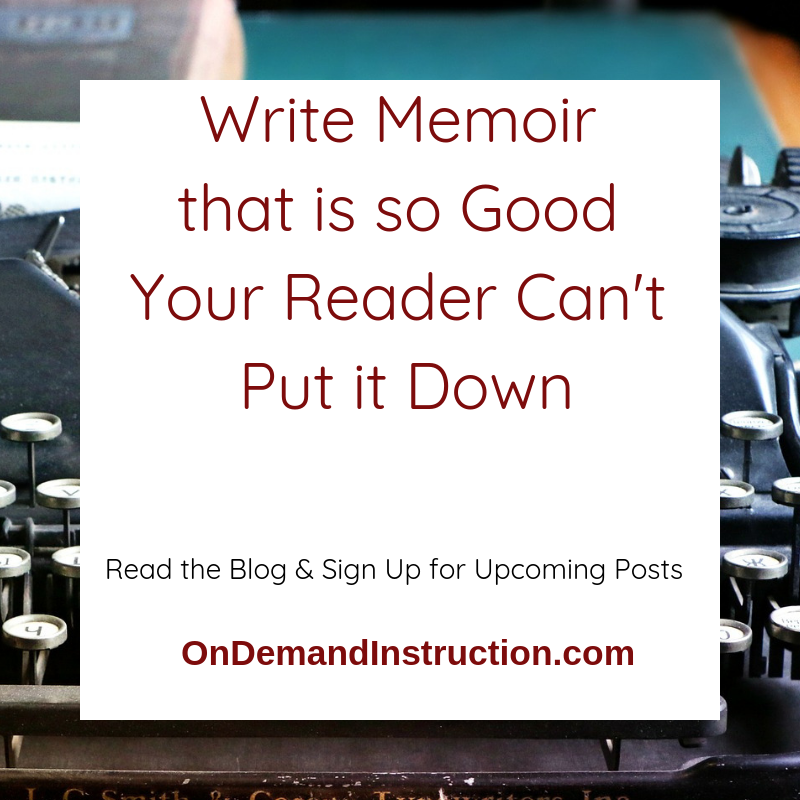
 RSS Feed
RSS Feed